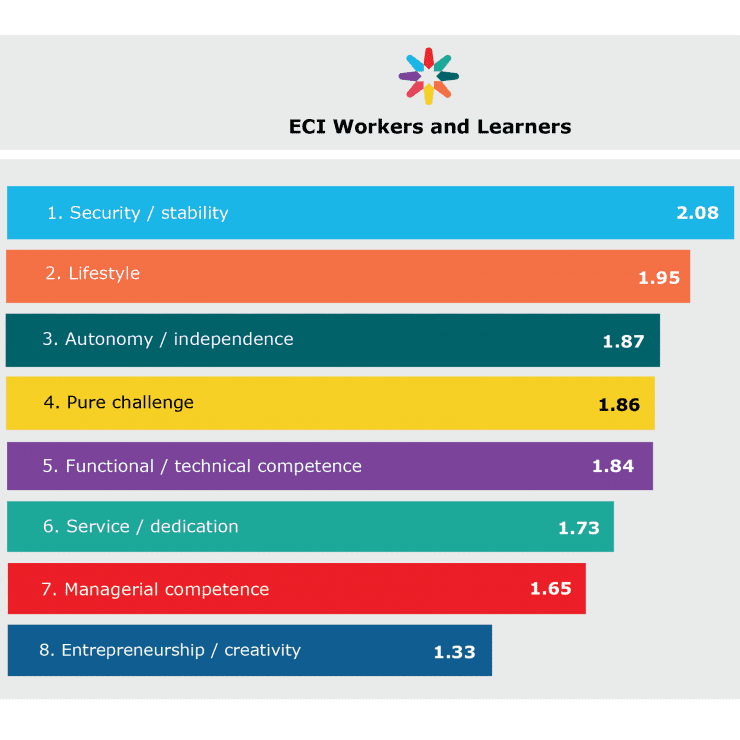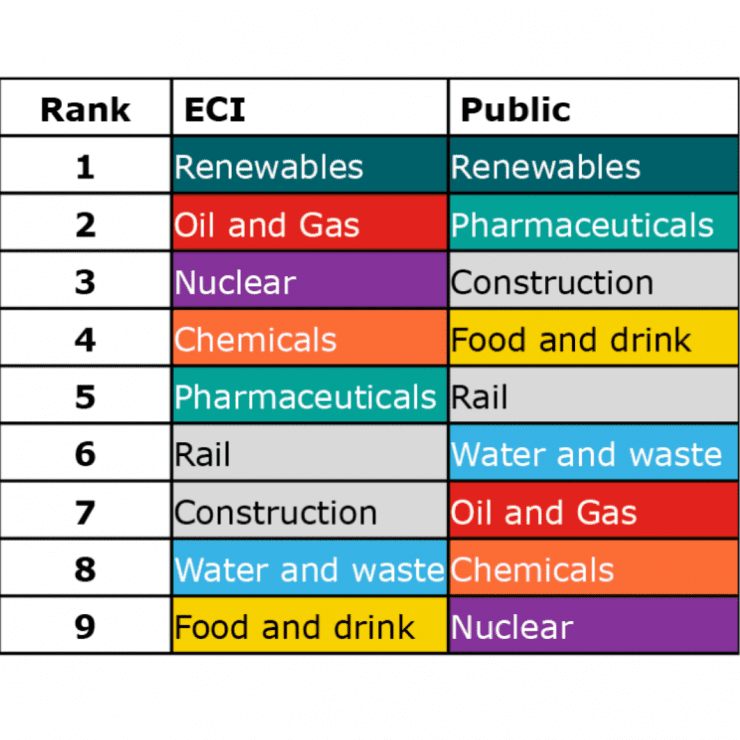Career motivations in engineering construction
In 2023, the Engineering Construction Industry Training Board (ECITB) undertook research into the career motivations of workers employed in the engineering construction industry (ECI), learners working towards qualifications relevant to the industry, and the general population regardless of professional sector.
The careers motivation study, titled Inspiring directions: Understanding career choices to accelerate change, consisted of a series of surveys targeting these three groups, with results aggregated by age and gender.
The purpose of the research was to provide a snapshot of what motivates career choices, to dispel potential myths regarding attitudes towards engineering construction and to develop an evidence base of the perceptions of the industry and its sectors.
Study details important factors people consider when making career choices
1,626 individuals from the wider UK population were asked for their views
154 people from within the industry – made up of 89 learners and 65 workers – were surveyed
Report includes recommendations based on the trends and perceptions found
Career motivations study overview

Career anchors
The cohort of ECI workers and learners were asked for their views on a series of career anchors developed by Edgar H. Schein that can be used by employers to reflect on how their organisation aligns with employee motivations to potentially increase job satisfaction, employee engagement and reduce turnover.
The surveys were constructed around these anchors to give continuity and structure to the responses, and to allow for comparisons across sectors, geographies, and other characteristics. Scores range from 0 (low importance of the anchor being considered) to 3 (high importance).
Of the eight anchors, security and stability ranked first, followed by lifestyle. Autonomy and independence, pure challenge, and functional or technical competence all obtained similar scoring between third and fifth place.

Motivation anchors
Engineering construction industry learners and workers were also asked to give their views on what motivates their career choices.
Each individual rated eight motivation anchors, covering specific aspects of their career. These elements are more specific than the career anchors and were rated out of ten (the higher the score, the higher the importance of the item for respondents).
Opportunities to progress and financial considerations were the top two, while opportunities to evolve in a welcoming and inclusive environment was third. Women place even more importance than men on this factor, scoring this 8.18 and 7.59 respectively. Opportunities to work on the energy transition ranked bottom.

Industry perceptions
The ECI learners and workers, as well as the sample from the general population, were asked whether they would consider joining any of the sectors on a pre-defined list.
Seven of these sectors belong to the ECI – namely oil and gas, nuclear, renewables, water and waste treatment, pharmaceuticals, chemicals and food processing – while two are industries whose labour markets are often considered to operate with some degree of overlap with the ECI, namely construction and rail.
Findings show ECI workers and learners view these sectors much more positively than the general population, with the results suggesting recruiting new entrants from outside the industry may be a challenge.
The report includes tables with percentage figures for each sector, broken down by ECI, public, age and gender, as well as tables such as the pictured rankings for popularity of each sector in the industry from the question ‘Would you consider joining the following sectors?’
Sign up for updates
Your information will be used to subscribe you to our e-newsletter.
For more information, please see our Privacy Notice.



